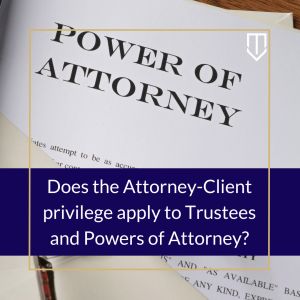 Commercial real estate is property being operated to generate business revenue through rental income or capital gains. Because it is meant to generate revenue if it is residential property, it must be used as rental housing to still be considered commercial real estate. It is not personal property.
Commercial real estate is property being operated to generate business revenue through rental income or capital gains. Because it is meant to generate revenue if it is residential property, it must be used as rental housing to still be considered commercial real estate. It is not personal property.
Commercial real estate may have multiple uses, like stores and offices or stores and residential property. Under California’s Civil Code, commercial real estate is treated separately from residential real estate. Commercial real estate buyers are presumed to be more experienced and sophisticated in their transactions. This is also because they are usually represented by an agent or broker who represents only their interests. (Easton v. Strassburger (1984) 152 Cal.App.3d 90, 103 fn 8.) Generally, a seller via their broker is required to disclose all facts materially affecting the value or desirability of the property to the purchaser (Civ. Code, § 2079.) This is called the transfer disclosure law. However, this only applies buildings with four or fewer dwellings, so the “transfer disclosure law” usually does not apply to commercial real estate.
With mixed use properties it may apply depending on the “sophistication” of the buyer. (Richman v. Hartley (2014) 224 Cal.App.4th 1182, 1189–1190.) There is less protection for commercial tenants, like businesses occupying commercial real estate. Commercial tenants are considered to be “differently situated” than residential tenants. (Civ. Code, § 1993.04) Commercial tenants are more likely to have resources if the need arises to vacate the rental premises.
 California Partition Law Blog
California Partition Law Blog


 The attorney-client privilege is well-known for a reason. It is a tenant of the legal profession, allowing for clients to approach attorneys with honesty and sincerity without fear that what they say will ever “leave the room,” so to speak.
The attorney-client privilege is well-known for a reason. It is a tenant of the legal profession, allowing for clients to approach attorneys with honesty and sincerity without fear that what they say will ever “leave the room,” so to speak. In recent years, the growth of vacation rentals have driven the rise of purchasing investment properties in highly desirable areas throughout the country. For years, investment rentals were so profitable that many people jumped into the market and purchased properties to get a piece of the action. Unfortunately, in recent years, the sheer number of vacation rentals in these areas diluted the marketplace and made it increasingly more difficult to turn a profit from these investments, and in some cases, have lead to investment losses.
In recent years, the growth of vacation rentals have driven the rise of purchasing investment properties in highly desirable areas throughout the country. For years, investment rentals were so profitable that many people jumped into the market and purchased properties to get a piece of the action. Unfortunately, in recent years, the sheer number of vacation rentals in these areas diluted the marketplace and made it increasingly more difficult to turn a profit from these investments, and in some cases, have lead to investment losses. Generally, an owner can never legally “abandon” title to property. (Gerhard v. Stephens (1968) 442 P.2d 692, 713.) Instead, abandonment can only be found in situations dealing with personal property. Yet when the property interests in real property are in the nature of incorporeal hereditaments, the California Supreme Court has found that those interests can be abandoned.
Generally, an owner can never legally “abandon” title to property. (Gerhard v. Stephens (1968) 442 P.2d 692, 713.) Instead, abandonment can only be found in situations dealing with personal property. Yet when the property interests in real property are in the nature of incorporeal hereditaments, the California Supreme Court has found that those interests can be abandoned. Generally, when obtaining representation for yourself and your property interests, you must make sure that your interests are indeed being protected and your wishes respected as much as legally possible. The moment it becomes clear that your attorney is not acting accordingly, it may be time to change your lawyer.
Generally, when obtaining representation for yourself and your property interests, you must make sure that your interests are indeed being protected and your wishes respected as much as legally possible. The moment it becomes clear that your attorney is not acting accordingly, it may be time to change your lawyer.